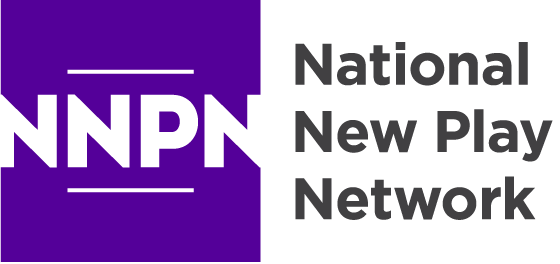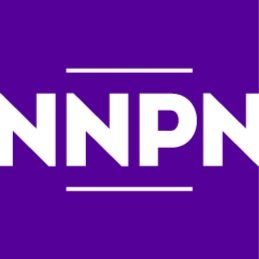How The Network Works
I don’t remember the first time I heard it. I think it may have been at the 2016 National Showcase of New Plays in Austin, but I’ve heard it so many times in so many places that it’s hard to be sure. Chances are if you’ve been in an NNPN space in the last five to ten years, you’ve heard it too. It goes something like this... “The networking part of the Network is what makes the Network work.”
When I first heard it, I appreciated the catchy word play and the succinct, pragmatic encouragement to get out there and start conversations. But when I look back at the web of connections that have threaded in and out of my life in theater so far, I think there’s more to it than that.
I first encountered NNPN in 2008. I was in college and doing a part-time internship with New Repertory Theatre in Watertown, MA, then a Core Member Theater. Under the supervision of then Artistic Associate (later Associate Artistic Director) Bridget O’Leary, I got my first hands-on experiences with new plays. She didn’t just teach me how to read and evaluate scripts, she taught me that there was a whole community – a network in fact – of other companies and collaborators who loved new work as much as we did. I have a vivid memory of sitting beside Bridget at her desk as she logged into an old-school chat room for an NNPN Pitch Session. Watching over her shoulder, as she and a dozen screennames typed energetically about plays they loved, writers they were following, and productions they hoped and planned for, made a lasting impression on me.
Fast-forward to 2013. I was the Literary Manager at the Eugene O’Neill Theater Center, and Nan was fresh into her tenure as NNPN’s Executive Director. The two organizations were starting to scheme about a program that would help launch the careers of new play directors. As those plans began to fall into place, I attended the final showings of the MFA Playwrights Workshop to get a better sense of how that program worked and how it might fit into the initiative that was coming together. By 2015, it had come together, as the National Directors Fellowship, and I was back to the Kennedy Center for the MFA Playwrights Workshop, this time accompanied by the inaugural class of Fellows and this time as a dramaturg. I recall rigorous creative work and enthusiastic collegiality. But what was really on display during those weeks was the depth of collaboration across the network – collaboration between NNPN, the O’Neill, and the Kennedy Center; collaboration between writers and creative teams composed of Member Theater staffers; collaboration between established professionals and the MFA playwrights, the NDFers, and the observers, all of whom were at various stages of advancing their careers.
At the MFA Playwrights Workshop with the inaugural NDF class, along with Nan & Jordana from NNPN.
A few years later, when I began contemplating new career opportunities, an acquaintance told me “If you leave the O’Neill, people won’t want to be your friend anymore.” The implication was that the relationships I had were based in my positionality and perceived power within the new play community, rather than who I was as an artist, an arts administrator, or a human. My favorite repudiation of that sentiment? I was less than one month into my post-O'Neill gig as Literary Manager at the American Shakespeare Center in Staunton, VA when Nan reached out and said “so, would you like to be an NNPN Ambassador?” Being an ambassador not only kept me appraised of NNPN’s exciting activities but also continued to introduce me to folks within the Network’s wider sphere of community.
One of my proudest moments in my role at the American Shakespeare Center was when, in 2019, the new play program I created had gained enough traction to make the theater eligible for Associate Membership. Despite having a pre-existing relationship with NNPN, this was my first time working for a Member Theatre and therefore my first time pitching a play for a potential Rolling World Premiere or nominating a playwright for the Smith Prize for Political Theater, among other firsts. It became clear to me that there was always more to discover about the Network, how it worked, and how it could work.
Opening Night of ANNE PAGE HATES FUN by Amy E. Witting, photo of Bostin Christopher (Ambassador), Nan, Amy (Affiliated Artist), Me, and a giant stuffed flamingo.
How it could work is the frequent question these days as I am fully ensconced in my new role as Programs Director. I still have a great deal to learn, but I see vestiges of my former selves/former NNPN relationships scattered across my work, impacting and influencing my approach and strategy. Perhaps more remarkable than my own varied experiences is how easy it is to see that I am one of many who brings multiple NNPN-touchpoints to their perspective on the organization, the Network, and the field. NNPNers move from being Producers in Residence to Member Theater staff, from MFA Playwrights Workshop playwright to Rolling World Premiere playwright, from Member Theater staff to Ambassador, from National Directors Fellow to Showcase finalist, and so many other assorted permutations. The Network shows us that lives in theater are often winding and surprising, but it also shows us that when you build honest-to-goodness human connections with other new play makers and lovers, those relationships travel with you wherever your path may lead.
When I first heard “the networking part of the Network is what makes the Network work,” I heard it literally and focused on small talk and swapping business cards. I see now my initial interpretation failed to comprehend the actual depth of the sentiment. So the next time you find yourself in an NNPN space - whether it be a synchronous virtual space (like a member chat), an asynchronous virtual space (like Mighty Networks), or an in-person convening (like, fingers crossed, Indianapolis in June) - I encourage you to get to know folks you don’t already know. Not because of who they are or what they might do for you or your organization. Get to know them as a human, because you don’t know who they’re going to be – or who you’re going to be – in one year, three years, or ten years, and the relationships we make today may be what sustains us on our journeys in this field.
Assistant to the Programs Director, Cordelia, also attended last year's Virtual Showcase.




